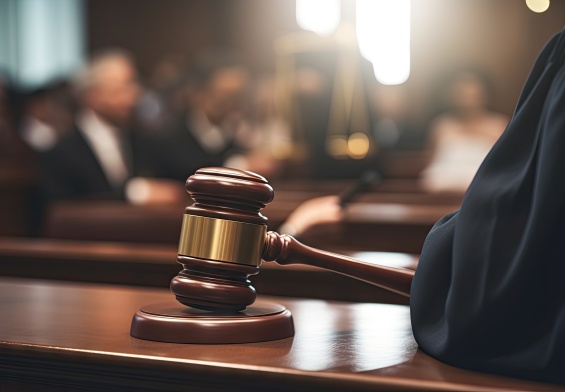In the intricate world of legal practice, maintaining confidentiality is paramount to preserving trust and fostering effective collaboration among attorneys. Attorney-attorney confidentiality, also known as the attorney-attorney privilege, is a foundational principle that ensures the privacy of communications between legal professionals. This principle is essential in fields like employment law and personal injury law, where attorneys often work together on cases or consult with colleagues to provide comprehensive legal advice.
Attorney-attorney confidentiality establishes a shield of privacy around communications shared between attorneys in the course of their legal representation. This privilege extends to discussions, correspondence, and consultations conducted in confidence between legal professionals. By safeguarding these communications, attorney-attorney confidentiality promotes candid dialogue, encourages collaboration, and facilitates the effective exchange of information and strategies. Moreover, it allows attorneys to seek guidance, share insights, and seek feedback from colleagues without fear of disclosure to external parties. This fosters a culture of trust and professionalism within the legal community, enabling attorneys to work together seamlessly to serve the interests of their clients.
Table of Contents
ToggleExploring Attorney-Attorney Confidentiality
Attorney-attorney confidentiality establishes a shield of privacy around communications shared between attorneys in the course of their legal representation. This privilege extends to discussions, correspondence, and consultations conducted in confidence between legal professionals. By safeguarding these communications, attorney-attorney confidentiality promotes candid dialogue, encourages collaboration, and facilitates the effective exchange of information and strategies. Moreover, it allows attorneys to seek guidance, share insights, and seek feedback from colleagues without fear of disclosure to external parties. This fosters a culture of trust and professionalism within the legal community, enabling attorneys to work together seamlessly to serve the interests of their clients.
Importance in Employment Law
In employment law, attorney-attorney confidentiality plays a crucial role in protecting the rights and interests of employees and employers alike. Attorneys often collaborate on matters such as discrimination claims, wrongful termination cases, or negotiations of employment contracts. The confidentiality of attorney-attorney communications ensures that sensitive information shared during legal consultations remains privileged and protected. This allows attorneys to provide comprehensive legal advice, strategize effectively, and advocate zealously on behalf of their clients, without concerns about the confidentiality of their discussions being compromised.
Safeguarding Privacy in Personal Injury Law
Similarly, in personal injury law, attorney-attorney confidentiality is vital for safeguarding the privacy and dignity of individuals who have suffered injuries due to the negligence of others. Attorneys may consult with colleagues, experts, or other legal professionals to gather evidence, assess liability, or develop litigation strategies. The confidentiality of these communications ensures that sensitive information, such as medical records, witness statements, or settlement negotiations, remains confidential and protected from disclosure to opposing parties. This enables attorneys to pursue the best possible outcomes for their clients while preserving their privacy and dignity throughout the legal process.
Ethical Considerations and Professional Responsibilities
Attorneys have a duty to uphold the confidentiality of attorney-attorney communications as part of their ethical obligations and professional responsibilities. Rules of professional conduct, such as those outlined by bar associations or legal regulatory bodies, establish guidelines for attorneys regarding the duty of confidentiality and the protection of privileged information. Attorneys must exercise discretion, integrity, and professionalism when handling confidential communications, ensuring that sensitive information is not disclosed without proper authorization or in violation of applicable laws and regulations.
Balancing Confidentiality with Legal Obligations
While attorney-attorney confidentiality is essential, attorneys must also balance this principle with other legal obligations and responsibilities. In certain circumstances, such as when disclosure is necessary to prevent imminent harm or comply with legal requirements, attorneys may be required to disclose confidential information. However, such disclosures must be made judiciously, in accordance with applicable laws and professional standards, and with the utmost respect for client confidentiality. By navigating these complexities with diligence and integrity, attorneys can uphold the principles of attorney-attorney confidentiality while fulfilling their broader responsibilities to the legal system and society.
Upholding Confidentiality: Preserving Integrity in Legal Practice
Attorney-attorney confidentiality stands as a cornerstone principle in the legal profession, ensuring the integrity of legal practice and fostering trust among legal professionals. By upholding this principle, attorneys demonstrate their commitment to protecting the privacy and confidentiality of their clients’ information, thereby safeguarding their rights and interests. Moreover, attorney-attorney confidentiality promotes effective collaboration and information sharing among legal professionals, enabling them to provide comprehensive and strategic legal advice to their clients.
Furthermore, attorney-attorney confidentiality plays a vital role in preserving the integrity of the legal system as a whole. By maintaining the confidentiality of communications between attorneys, the legal profession upholds its ethical obligations and promotes fairness and justice in legal proceedings. Attorneys must continue to prioritize confidentiality in their practice, exercising discretion and professionalism when handling privileged information. By doing so, they contribute to a legal environment built on trust, respect, and integrity, ultimately enhancing the quality of legal representation and the administration of justice for all.




